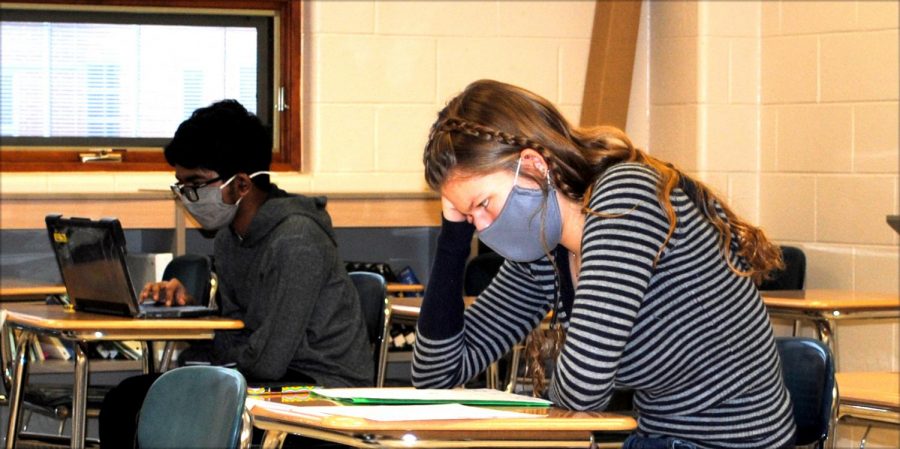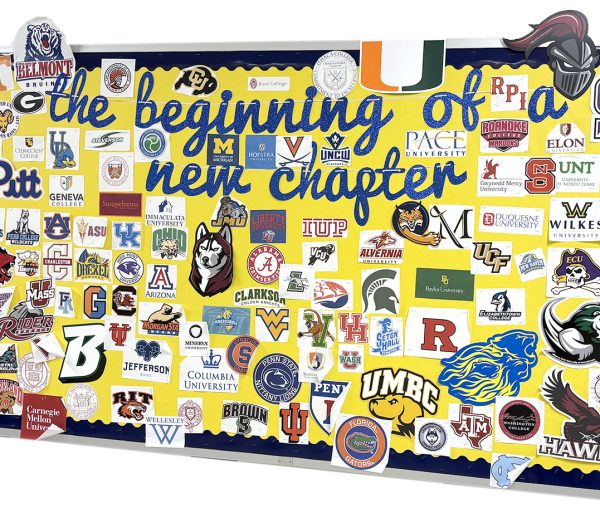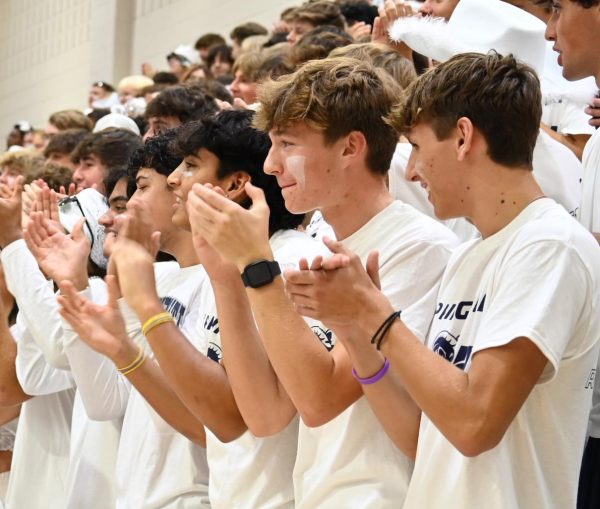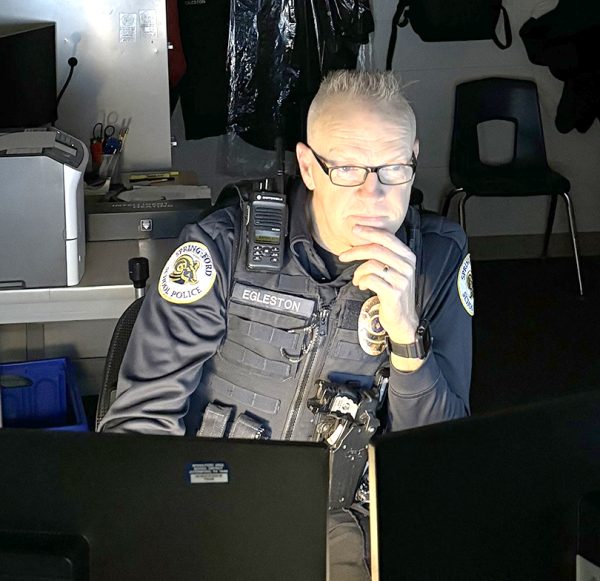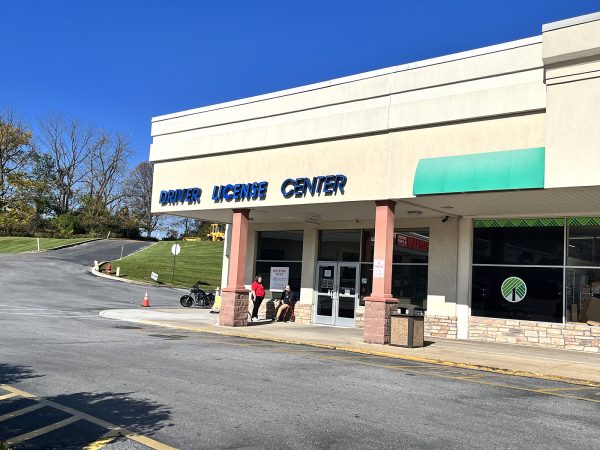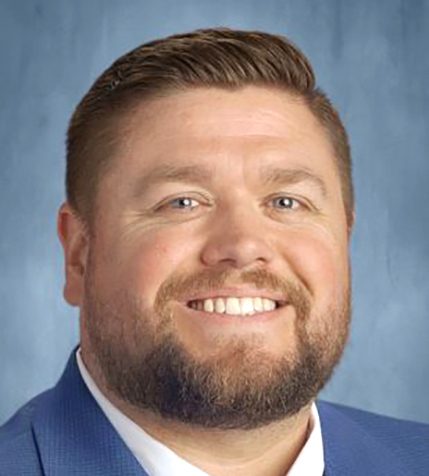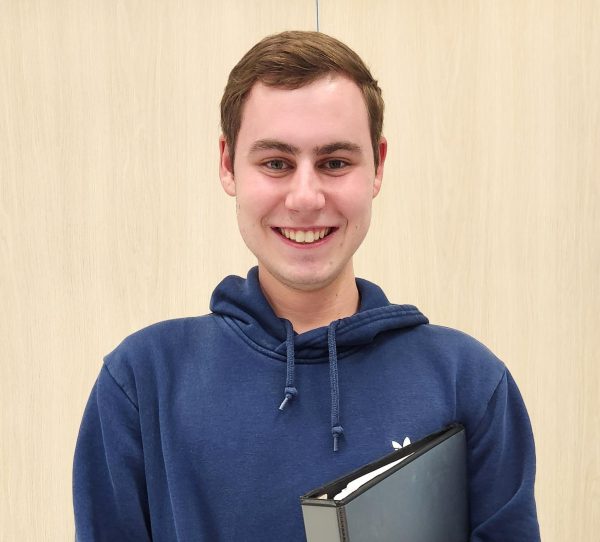Year like no other
Administrators lead effort to adjust to an ever-changing pandemic
Keely Curcio (right) and Samyan Nakkella work during a study hall Feb. 9 in the 10-12 Center.
February 26, 2021
While students, educators, and administrators have worked in cooperation to steer the school year to some semblance of normalcy, academic changes and challenges during the era of COVID are obviously abundant.
The public ceaselessly discusses the prolific impacts of the pandemic on the educational system and how it has drastically altered the lives of students. In the midst of this ongoing discourse, the administrative perspective is much less frequently discussed.
The administrators at Spring-Ford play a crucial role in ensuring a smooth transition from virtual, to hybrid, to in-person learning models. Keeping the educational experience engaging is one of the biggest challenges in the virtual/hybrid/in-person setup.
One of the other biggest challenges?
“Keeping up with the changes that come day to day,” 10th Grade House Principal Dr. Elaine Ruppert said. “We don’t know where we’ll be or what will happen.”
Teamwork and ingenuity have taken center stage during this trying time, especially so at Spring-Ford. The ability of the district to adapt quickly to the virtual environment will create a lasting impact on the future of education.
“You always have staff supporting staff, and students supporting students, and staff supporting students,” Ruppert said. “This year, we really hit home with that.”
For better or worse, remote learning has encouraged students, teachers, and families to adapt to new technology and different methods of instruction.
“Balancing multiple learning environments can be difficult,” said Dr. Robert Colyer, 10-12 Center Principal. Speaking to the recent months’ rapid acceleration in usage of technology, he views the current situation as a challenge but also as a reinforcement to nationwide modernized learning initiatives.
“What we’re seeing is a changing dynamic in terms of access to education,” Colyer said.
Throughout the district we now have a continuum of learning options. What we established out of necessity will stay with us as unintended benefits.”
When questioned on the potential positive outcomes of these times, Ruppert stressed the importance of continuing to strengthen interpersonal relationships. Additionally, the lessons learned of remote learning will remain.
“We have learned so much about teaching virtually,” Ruppert said. “That is something we can carry on beyond all of this.”
“The educational system has been altered irrevocably,” Ruppert concluded. “I don’t think it is damaged. It has changed to the point that it will never be exactly what it was. Not for better or for worse; it’s just changed.”

